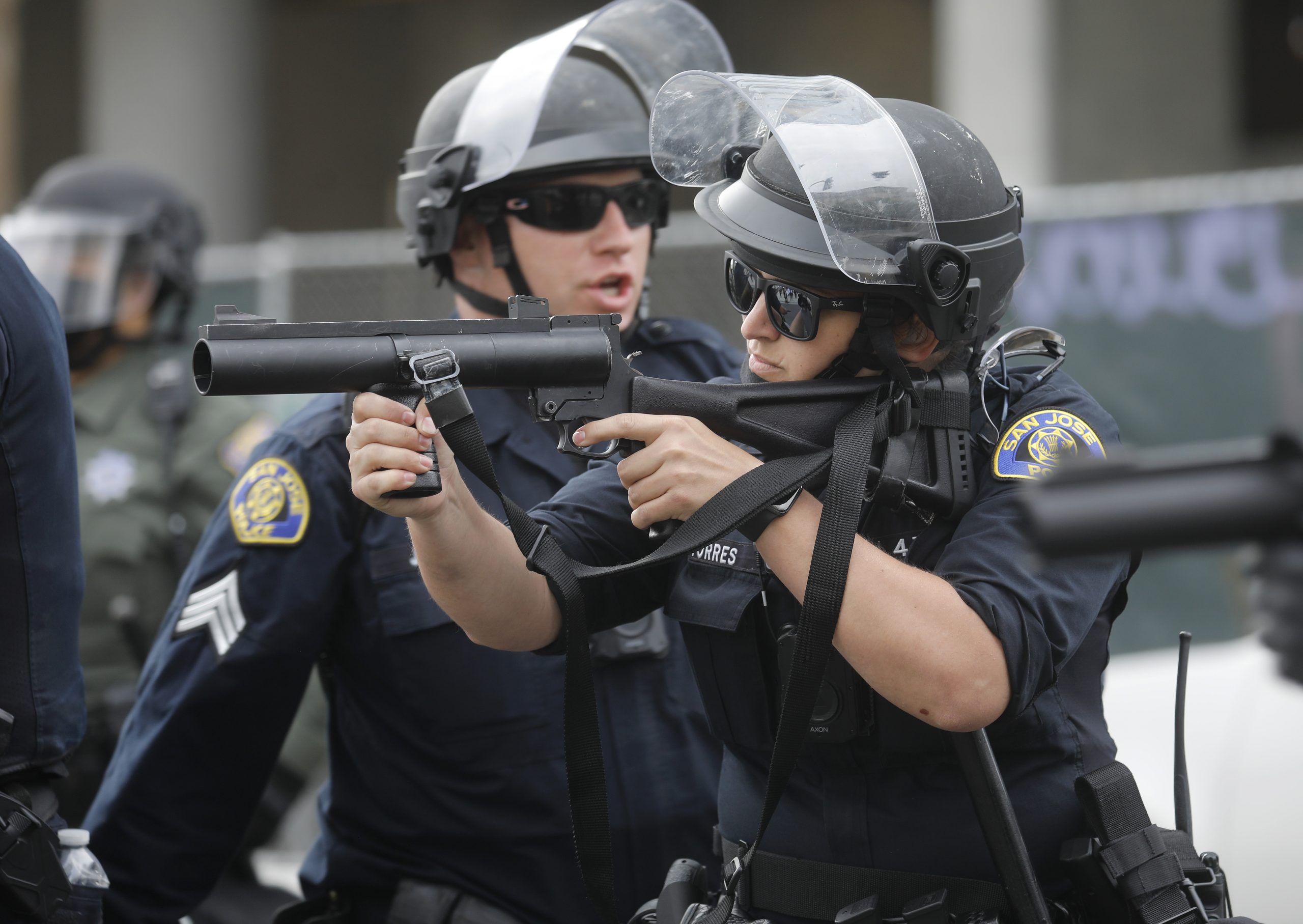The “summer of hate” reached its apogee in Charlottesville, Virginia, when police didn’t separate clashing white nationalist demonstrators and anti-racist counter-protesters for fear of confronting openly carrying militia members, who showed up to ensure that “free speech” rights were guaranteed. The militia members weren’t the only ones armed: At least one “Unite The Right” marcher, a Ku Klux Klan member from Maryland named Richard Preston, carried a holstered handgun, which he brandished and then fired toward a counter-protester.
There was nothing the town of Charlottesville could do to prevent the armed paramilitary groups from toting firearms through the streets. Open carry is legal in Virginia; there is no law on the books prohibiting guns at protests; and a state preemption law forbids cities from making their own firearms regulations.
Most cities in the U.S. are in the same position as Charlottesville: powerless to prevent armed groups from participating in potentially volatile political protests and demonstrations, according to separate analyses by attorneys at the Law Center to Prevent Gun Violence and Everytown for Gun Safety (a donor to The Trace).
Thirty-six states either explicitly allow concealed and/or open carry at rallies, or don’t forbid guns in that setting — and also preempt localities from making their own rules keeping firearms away from demonstrations. Nine more states allow guns at protests, but give cities some leeway to make their own regulations. Only seven states, along with the District of Columbia, bar firearms at rallies.
Most Local Officials Can’t Ban Guns at Protests
SOURCES: Everytown for Gun Safety; The Law Center to Prevent Gun Violence
There is a fair bit of nuance in these broad distinctions. Some of the states that both permit guns at protests and tie cities’ hands from completely prohibiting weapons in public do allow some kind of restrictions: Texas, for example, allows cities to clamp down on open carry at protests, but they can’t prevent concealed carry, so long as the person is licensed. Florida bans open carry altogether, but allows concealed carriers to bring guns to marches and preempts cities from taking any of their own rules about weapons in that context. Arizona allows event organizers to ban guns, but not local government.
There are also differences among the states that allow guns at protests but then give cities authority to make their own rules. Massachusetts allows guns at protests, but with no preemption law, cities can do whatever they want. The city of Boston banned any weapons, even those brought by licensed concealed carriers, at August’s so-called Free Speech rally and counter-protest. Tennessee, meanwhile, allows towns to keep guns out of protests, but only if they comply with the onerous requirement that every event attendee walks through a metal detector.
There are surprises among the states that completely ban guns at protests. Some are liberal coastal states like California and New York, but others are bastions of conservatism and gun culture.
North Carolina is an example of the latter: While the state allows open carry and preempts cities from making their own gun rules, it also has a law explicitly banning guns from demonstrations and one against “going armed to the terror of the people.” Those statutes, both misdemeanors, were recently used to prosecute two leftists who brought firearms to an anti-KKK march in Durham.
Correction: A previous version of this article stated that 35 states prevent cities from banning guns at protests. The correct number is 36. It also erroneously stated that Florida forbids all guns at protests. While Florida completely prohibits the open carry of weapons anywhere in the state, it does allow concealed carriers to bring guns to demonstrations and preempts localities from regulating the practice. Additionally, the article mistakenly said that New Jersey completely bans guns at protests. New Jersey does allow guns at protests, but cities within the state have broad authority to regulate guns in public.


